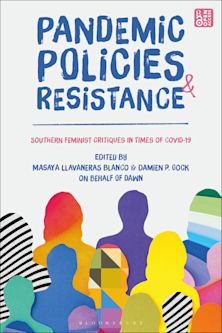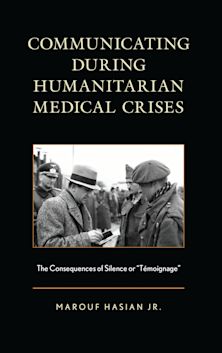- Home
- ACADEMIC
- International Development
- Health and Development
- Drugs Policy in Developing Countries
Drugs Policy in Developing Countries
Drugs Policy in Developing Countries
This product is usually dispatched within 2-4 weeks
- Delivery and returns info
-
Flat rate of $10.00 for shipping anywhere in Australia
You must sign in to add this item to your wishlist. Please sign in or create an account
Description
This policy-relevant study grew out of an evaluation conducted by its authors - all scholars at the London School of Hygiene & Tropical Medicine and the Royal Tropical Institute, Amsterdam - of the World Health Organization's Action Programme on Essential Drugs. Their review, involving 13 country studies and WHO's five regional offices, looks at how the idea of a rational drug policy in developing countries came about, evaluates the achievements in specific countries, and discusses some of the issues that remain to be resolved - particularly issues around AIDs, contraception and cost recovery.
It should prove useful to policy makers and academics, teachers and students, managers and professionals, as well as international agencies in the health field.
Table of Contents
Contributors
Foreword and Acknowledgements
Acronyms and Abbreviations
1. Early Initiatives in Essential Drugs Policy - Masuma Mamdani
2. Formulating an Essential Drugs Policy: WHO's Role - Gill Walt and Jan Willem Harnmeijer
3. Consumers versus Producers: Power Play Behind the Scenes - Anita Hardon
4. Action at Country Level: The International and National Influences - Najmi Kanji
5. What Has Been Achieved and Where are We Now? - Najmi Kanji and Anita Hardon
6. New Horizons in the 1990s - Anita Hardon and Najmi Kanji
Appendix
Index
Product details
| Published | 01 Sep 1992 |
|---|---|
| Format | Paperback |
| Edition | 1st |
| Extent | 152 |
| ISBN | 9781856490603 |
| Imprint | Zed Books |
| Dimensions | Not specified |
| Publisher | Bloomsbury Publishing |
About the contributors
Reviews
-
This book comes as a welcome reminder of the many efforts to develop policies for a more rational use of medecines. It provides a clear outline of some of the possible strategies to achieve change.
Andrew Chetley, author of A Healthy Business: World Health and the Pharmaceutical Industry
-
Anyone who wants to understand the limitations and constraints of developing and executing a global policy to improve health in developing countries will find this book essential reading.
Calvin M. Kunin, M.D., Department of Internal Medicine, Ohio State University
-
The WHO has succeeded in making "essential drugs" a respected concept. This book documents this crucial step in the improvement of the supply of medicines for people in the South.
Sjaak van der Geest, University of Amsterdam



































